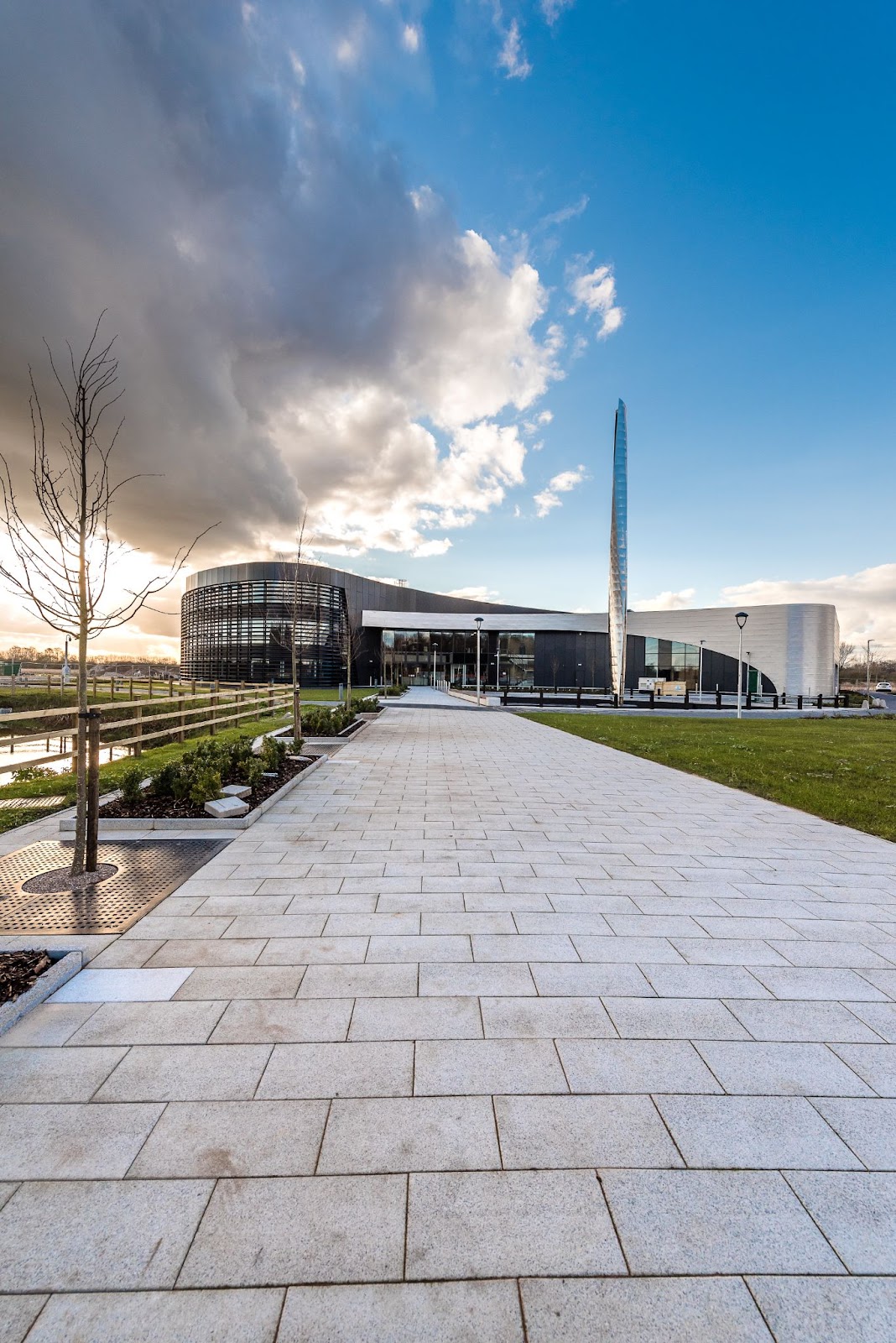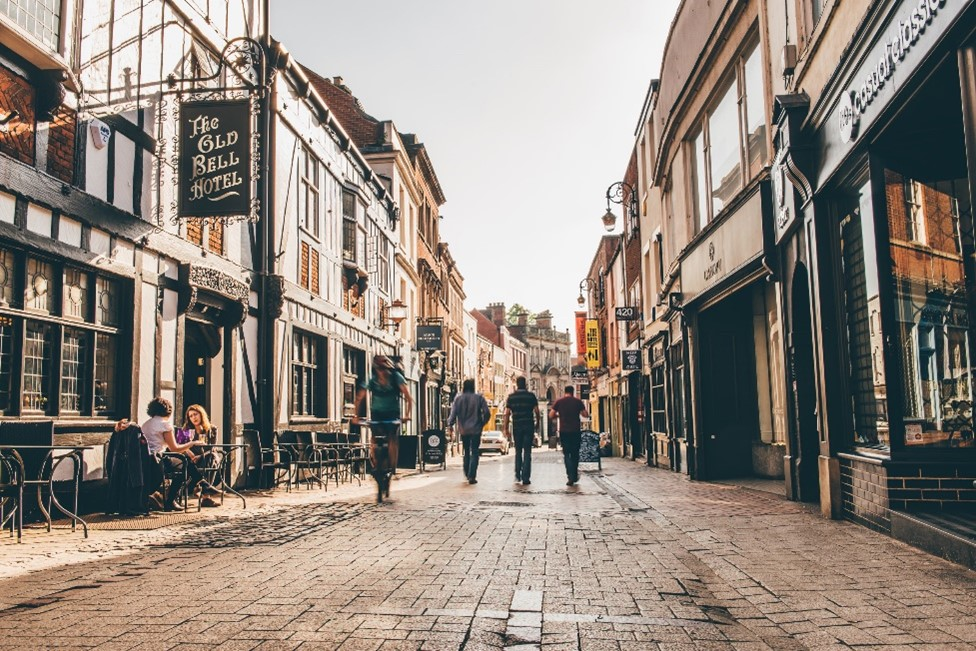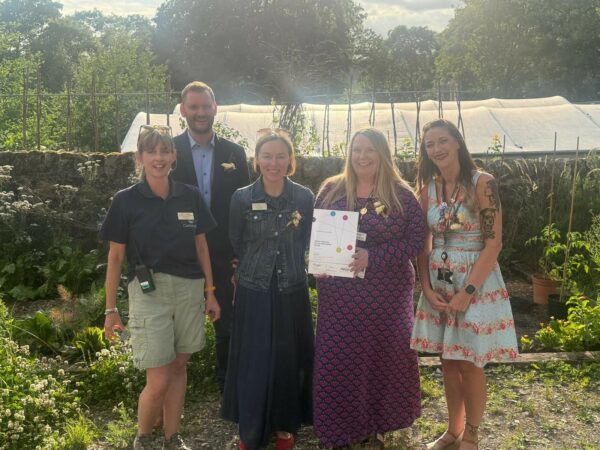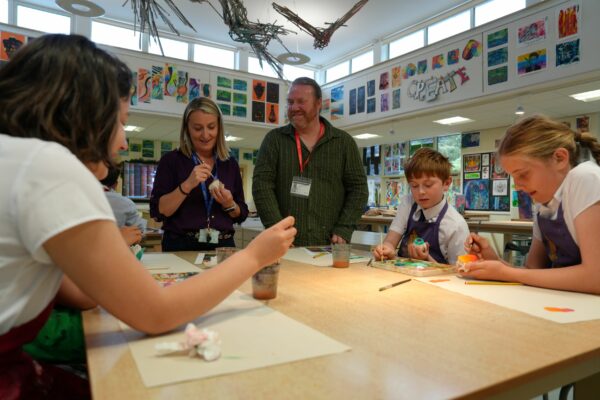Latest News | 6 December 2022
Could Derby host 2,600 bookshops?

“A bookstore is one of the only pieces of evidence we have that people are still thinking.”
Jerry Seinfeld
Last month, the United Nations announced that Derby has been invited to join the UNESCO Global Network of Learning Cities.
This brilliant achievement is the result of a submission by local partners – Derby City Council, the University of Derby, Derby County Community Trust and the Derby Opportunity Area Board – and this shiny new global badge complements our existing UNESCO status as being proud home to the Derwent Valley Mills World Heritage Site.

It means we now join a club of 294 ‘learning cities’ across the world – including Belfast, Bristol, Derry, Glasgow, Swansea and Wolverhampton in the UK – all committed to the exchange of ideas, policies and practices that encourage lifelong learning.
A tangible outcome will be an annual Festival of Learning which will be held across the city, complementing the Derby Book Festival, drawing together strands of learning and reading.
The Derby Book Festival has a credibility probably unthinkable when two book lovers came up with the idea over a glass of wine at the Quad and over its 8-years, it has grown from strength to strength, attracting thousands of people to hundreds of events and outreach work.
Marketing Derby promotes the city to investors as the UK Capital of Innovation. We base this on our 300-year history, from being home to the world’s first factory, through to today’s advanced manufacturing-based, hi-tech economy. This pitch never fails to capture the attention and imagination of those considering Derby as a business location.

Our narrative includes the level of talent and associated high salaries currently hosted in the city. Derby’s average pay is now £36,888 per annum, compared to the regional and national averages of £29,109 and £31,865 respectively. Inevitably, we also put our best foot forward when outlining other positive benefits, such as the quality of life possible in these parts.
However, that message avoids a darker picture of inequality in education, health and social mobility within the city. I feel that we must deal with this issue – by making it front and centre – not only in the learning city initiative, but also in the city’s overall growth strategy.
First, some uncomfortable facts.
Social mobility is critical to a healthy economy and community, and yet Derby is considered as a social mobility cold spot. Disappointingly, we sit in the bottom 10% of local authorities by this measure (as does our neighbours in Nottingham and many other regional districts).
In short, it means that if you are born in Derby, then you are less likely to work your way up into a higher-skilled and better paid life than those born in 90% of other areas.

Going back to salaries and looking just at those living in the city itself, Derby’s average pay drops dramatically to the more sober figure of £30,113, sitting below the national average.
This is not just a local problem as (shockingly, but maybe not surprisingly) 19 out of the top 20 social mobility hot spots (i.e., areas in which you are most likely to progress in life) are in London – only Trafford in Manchester busts into this club and even then, only scraping into 20th place.
This inequality goes well beyond pay, for example into health expectations. A person born in Allestree has a life expectation 10-years greater than a person born in Arboretum. That’s 10-years more life in a short 2-mile distance.
Something is clearly wrong as these levels of inequality are a wider UK phenomenon, resulting in the potential talent of millions of people being lost and the flatlining in growth and productivity that we see today.
Any serious attempt to ‘level’ this up is going to take more than a few government funding competitions – maybe something more akin to the investment made in the merger between east and west Germany in the 1990s.
Of course, we cannot control this locally, but we can focus on partnership action and the glimmers of hope provided by the likes of the Book Festival and Learning City, as well as the Opportunity Area and broader education community in supporting reading and writing.

Again, there is a serious national challenge as there are 9 million functionally illiterate people in the UK. We lie in 39th place on the world index of literacy, a table led incidentally by Finland and Norway.
Derby’s performance at the all-important Key Stage 2 (10-years of age) is improving but we still sit at 129th in the UK in reading, writing and maths.

So, how do we turn this around?
Can Derby become a city that uses its undoubted strengths to tackle its revealed weaknesses?
Can we lever our new status as a learning city to reach those parts generally bypassed?
As a new grandfather I’m seeing the role books can play in infant development. Basically, from the date of birth, books can be inculcated into a child’s progress and research points to lifetime benefits from those interactions.
Books have always played the role as a fingerprint of civilisation, from the papyrus tablets and scrolls of ancient Egypt, through to the explosion following the invention of the printing press in Germany in 1440.
I’ve been lucky to visit some of the greatest bookshops in the world – Powell’s in Portland Oregon, Shakespeare’s in Paris and Daunt in Marylebone. Locally, I’d add the wonderful Scarthin Books in Cromford or Scriveners in Buxton.

Sadly, Derby is woefully short of places to explore books and, whilst we still have 15 libraries across the city, except for Waterstones, there are no independent bookshops.
Could we not use our new global learning city status to fix this by acting as a catalyst for a reading renaissance?
For example, could Derby attract more independent bookshops, pop-up or permanent, specialist or general, new or second-hand, paid for or free?
Do we not now have an opportunity to apply the innovation we see in our economy into a new area – maybe filling many of the city’s empty shops with pop-up bookshops during next year’s festival of learning?
In the 1960s, Hay-on-Wye went full book and today this small town of 2,000 people hosts over 20 bookshops. Just think, a similar proportion applied here would mean an amazing 2,600 bookshops in Derby…
Now, that would please Jerry Seinfeld.


